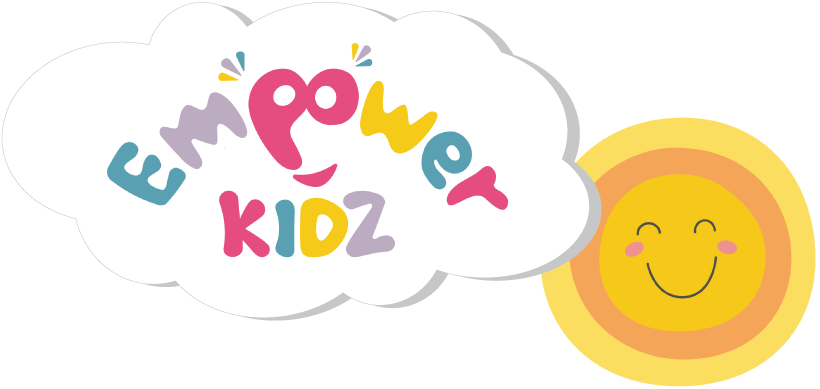September 25, 2025
The demand for professional child care services is increasing as more families seek reliable support for their children during work hours. These services play a crucial role in modern society by offering structured and nurturing environments for young children. As parents navigate the challenges of balancing professional and personal responsibilities, child care services offer significant advantages that enhance family well-being. This article delves into the myriad benefits of professional child care, ranging from enhanced child development to economic impacts, presenting a compelling case for their widespread adoption.
1. Supporting Enhanced Child Development
Cognitive development is one of the primary areas professional child care services enhance through structured curriculums. These curriculums are designed to stimulate young minds with age-appropriate activities that promote critical thinking and problem-solving. Children are exposed to various educational materials that encourage exploration and curiosity, laying the foundation for lifelong learning. Through guided play and interactive lessons, child care environments nurture cognitive skills that are crucial for academic success. Such settings provide children with the tools to think critically and learn effectively as they progress through their educational journey.
Language acquisition is another key area of development enhanced in child care environments. The continuous communication within these settings helps children expand their vocabulary and improve language skills. Educators play a crucial role in facilitating language development through storytelling, songs, and daily conversations. Children who attend child care have exposure to language-rich environments that promote reading and literacy skills. Over time, these experiences contribute to strong language foundations essential for academic and personal success.
In professional child care settings, emotional growth is nurtured under the guidance of trained educators. Children learn to manage emotions, develop empathy, and build resilience through daily interactions and activities. Early childhood educators provide a supportive environment where children feel safe to express themselves and navigate emotional challenges. The relationships formed in these settings foster a sense of security and belonging, contributing to healthy emotional development. Emotional intelligence cultivated in these environments is an important aspect of personal and social success.
2. Providing Parental Peace of Mind
Parental peace of mind is significantly enhanced by the safe environments provided by professional child care services. These centers implement strict safety measures and follow regulations that ensure children's well-being at all times. Safety protocols include secure entrances, child-proofed spaces, and constant supervision, providing parents with reassurance. Knowing their children are in a secure environment allows parents to focus on their work and daily responsibilities without worry. These stringent safety standards are a cornerstone of child care services, prioritizing children's protection above all else.
Consistency and routine are vital elements offered by child care services that benefit both parents and children. Reliable schedules and structured daily activities help children feel secure and develop a sense of stability. These environments provide predictability, fostering children's emotional comfort and cognitive engagement. Additionally, consistent routines aid in developing self-regulation skills and a sense of time management. For parents, these routines provide a sense of order that helps harmonize family and work commitments, reducing stress and anxiety.
Parental involvement is highly encouraged in professional child care settings, fostering a partnership in children's development. Regular communication between caregivers and parents ensures collaborative efforts in supporting children's growth. Many centers offer opportunities for parents to participate in activities and events, strengthening the connection between home and child care environments. This involvement empowers parents to contribute to their child's experiences and maintain an active role in their development. The open dialogue and cooperation between parents and caregivers enhance the overall child care experience.
3. Preparing Children for School Success
Preparation for formal schooling is a critical benefit of professional child care services, where children develop academic readiness through engaging curricula. These programs introduce foundational concepts in literacy, numeracy, and science, preparing children for classroom learning. Through targeted activities, children develop essential skills such as attention, concentration, and memory, vital for academic success. Professional settings also foster educational enthusiasm, encouraging children to embrace learning as an enjoyable pursuit. This preparation sets a strong foundation for future academic achievements and lifelong learning habits.
The structured environment in child care services is instrumental in teaching children self-discipline and responsibility. Daily routines and organized activities teach children to follow instructions and manage tasks independently. This exposure to structure helps develop time management skills and a sense of discipline important for school success. The reinforcement of positive behaviors and the application of consistent boundaries contribute to children understanding the importance of rules. This structured approach aids children in adjusting smoothly to the more formal school environment.
Child care services emphasize fostering independent thinking and problem-solving skills in children. Activities that encourage exploration and curiosity promote cognitive independence and critical thinking. These opportunities allow children to engage with challenges, fostering resilience and adaptability in confronting new situations. By supporting autonomous decision-making, child care settings help children develop confidence in navigating academic and life challenges. The cultivation of independent thinking is invaluable for children's self-esteem and future success in various settings.
4. Driving Economic Benefits for Families and Communities
Professional child care services provide essential support for parents, enabling them to pursue employment opportunities confidently. This access allows families to achieve financial stability and contribute to the workforce significantly. According to IBISWorld, the United States daycare industry is valued at about $61 billion, reflecting its substantial role in the economy. Child care services offer parents the flexibility required to balance professional growth with parental responsibilities. Such support is crucial for women's participation in the workforce, promoting gender equality in employment spaces.
Access to reliable child care services can significantly increase parental productivity at work. When parents are assured of their children's safety and development, they can focus more efficiently on their job responsibilities. This peace of mind reduces absenteeism and stress-related disruptions, contributing to greater work performance. Companies benefit from employees who are more engaged and committed due to stable child care arrangements. As a result, child care services become integral to maintaining a motivated and productive workforce.
Child care services contribute to children's long-term success by laying a strong educational and personal development foundation. Early childhood education improves cognitive and social skills, promoting academic achievements and career prospects. The supportive environment fosters resilience, adaptability, and lifelong learning habits integral to personal and professional success. Investment in high-quality child care services can yield economic returns through increased earnings and decreased societal costs. The long-term benefits of early education emphasize its critical role in shaping future success and opportunities.
Child care services contribute to local economic development by supporting a robust workforce and generating employment opportunities. These centers create jobs in caregiving, administration, and other support roles, bolstering local economies. By enabling parents to work, child care services help sustain business operations and local economic activities. Community investment in child care infrastructure can attract businesses and families, fostering economic growth. The economic impact of child care services extends beyond individual families, benefiting entire communities and regions.
Professional child care services offer a comprehensive array of benefits that extend significantly beyond basic supervision. They enhance child development, provide parental peace of mind, foster economic vitality, and support broader societal inclusion. By investing in professional child care, families contribute to a foundation for their children's future success and well-being. If you're looking for a quality child care service to help foster your child's academic and emotional growth, get in touch with Empower Kidz Drop-In.



